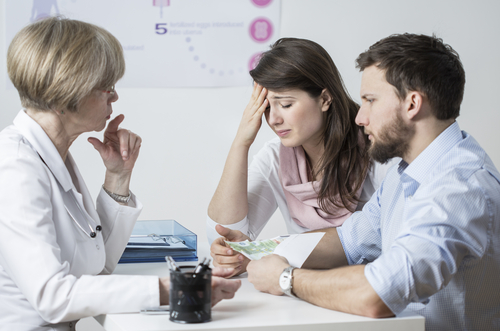Doctors could do a better job of addressing the psychological and social concerns of women with endometriosis, a condition that can impact patients’ intimate relationships and self-perception, according to a study.
Gynecologists in particular may focus on the women’s physical needs rather than a combination of their physical and psychological needs, the researchers said. The study dealt with 12 physicians’ perceptions about providing psychological and social therapy to endometriosis patients.
Endometriosis is a chronic inflammatory condition in which tissue that normally lines the inside of the uterus — the endometrium — grows outside the uterus. It is often very painful. Common symptoms include painful menstruation, heavy menstrual bleeding, and bowel and bladder dysfunction.
Research has revealed that endometriosis affects all areas of women’s lives, including their work and social life, intimate relationships, and self-perception.
The study, “Clinicians’ perceptions of women’s experiences of endometriosis and of psychosocial care for endometriosis,” was published in the Australian and New Zealand Journal of Obstetrics and Gynaecology.
While psychosocial support does not treat medical conditions, it helps patients deal with the psychological impact of those conditions and the social environment they find themselves in each day, including home and work. The goal of psychosocial support is to improve patients’ mental well-being and ability to function regardless of setting.
The study underscored the need for clear and expanded medical guidelines for optimal care of women with endometriosis, researchers said.
They interviewed eight gynecologists and four general practitioners about their perceptions of what women with endometriosis face, and about the physicians’ perceptions of what psychosocial support should be afforded the patients.
Doctors had similar perceptions about the psychological impact that endometriosis-related infertility had on their patients. They were less certain about the impact the condition had on women’s work, social life, and intimate relationships.
“There was a notable difference between the specialties, in that most GPs identified providing psychosocial care to women with endometriosis as part of their job, whereas [only] half of the gynecologists did,” the report said.
“General practitioners positioned themselves as best placed to provide psychosocial care to women with endometriosis; gynecologists suggested various potential professionals who could, but rarely themselves,” the researchers wrote.
“Most clinicians assessed themselves as not being adequately trained to understand and provide care for the psychosocial aspects of endometriosis; half of the gynecologists did not believe it was necessary for them to do so,” the team wrote.
The study concluded that “the findings of this research demonstrate clinicians’ need for further support in the provision of psychosocial care for women with endometriosis, potentially through expanded clinical guidelines and professional development opportunities.”

